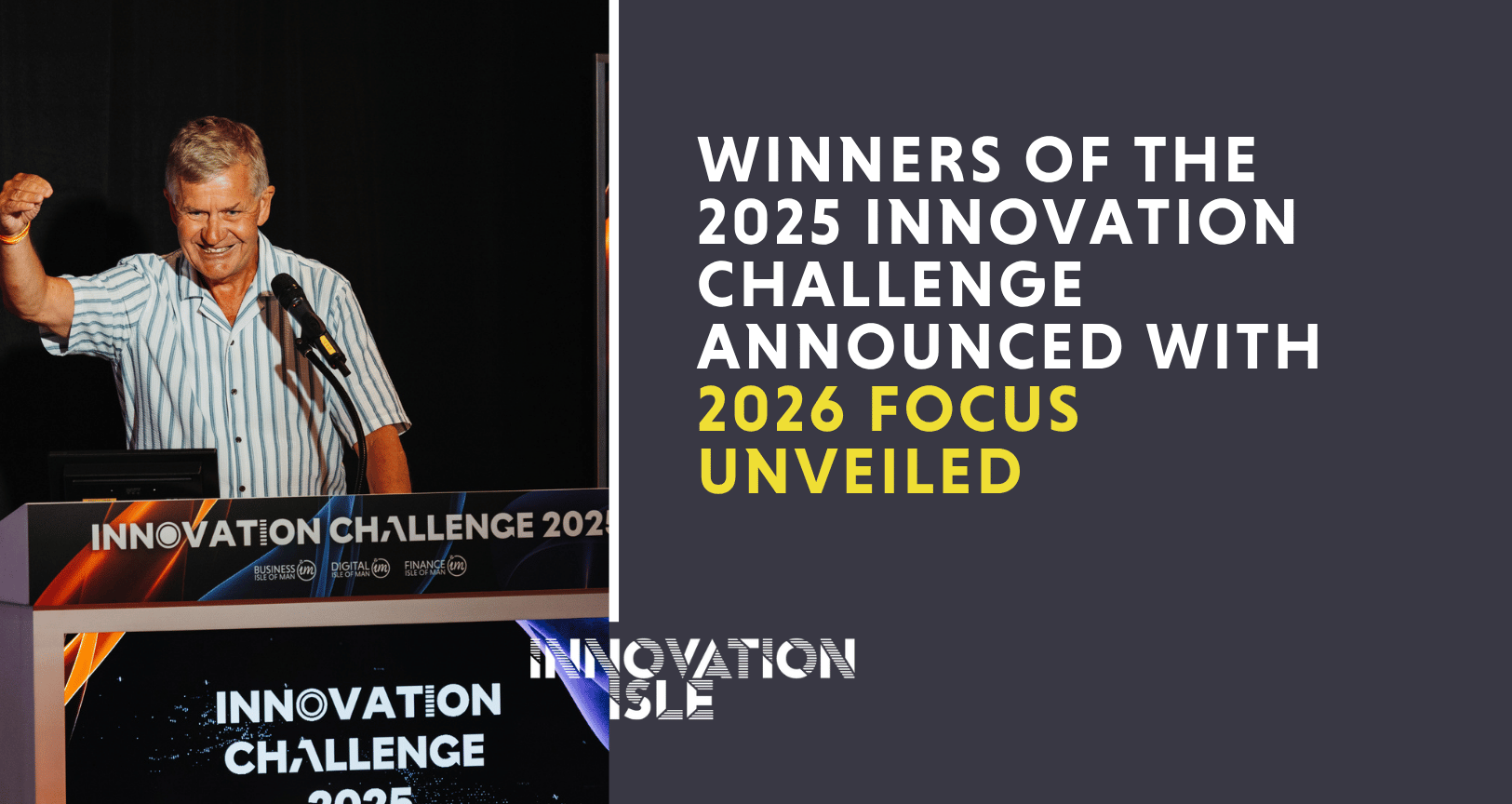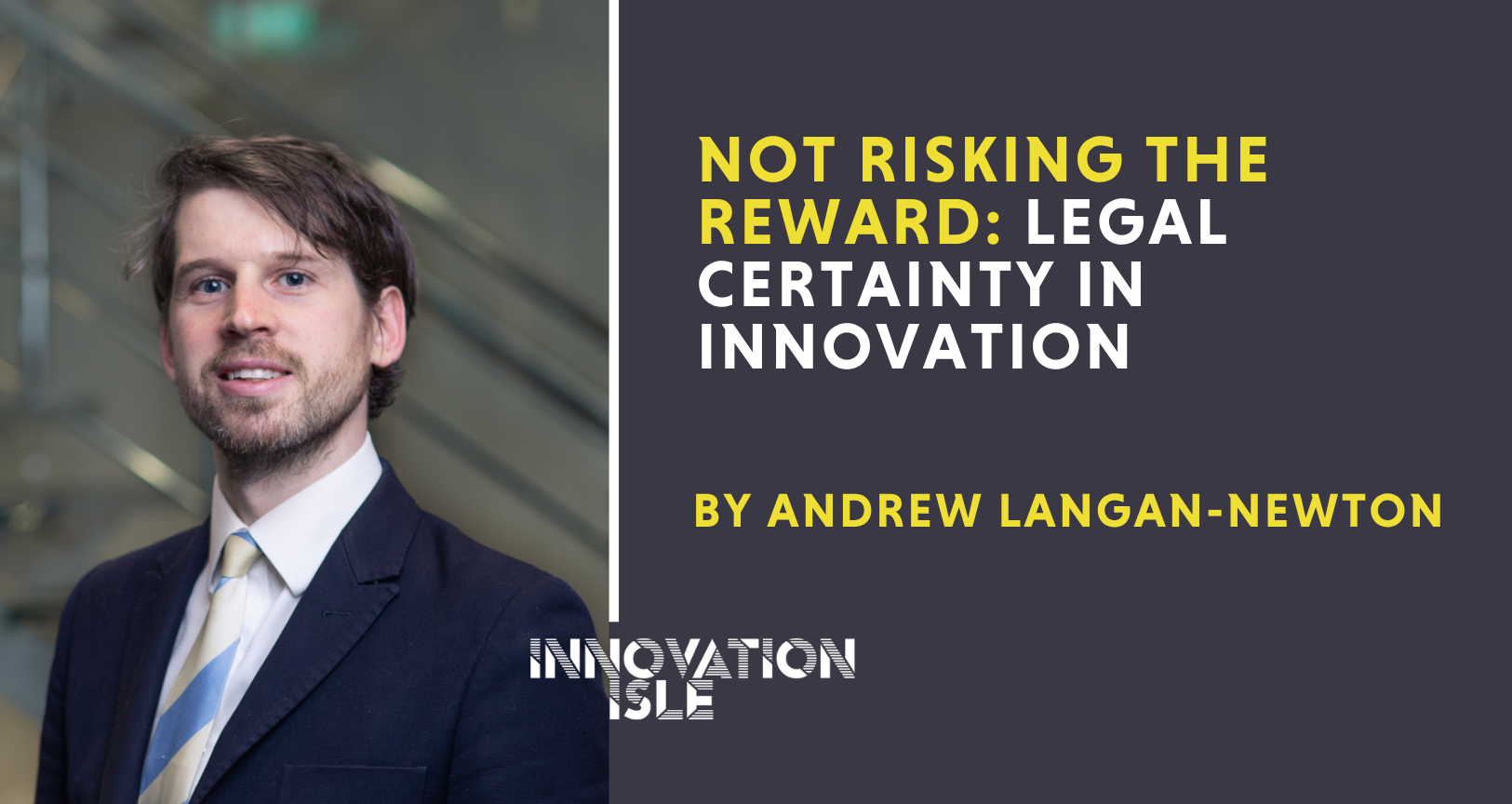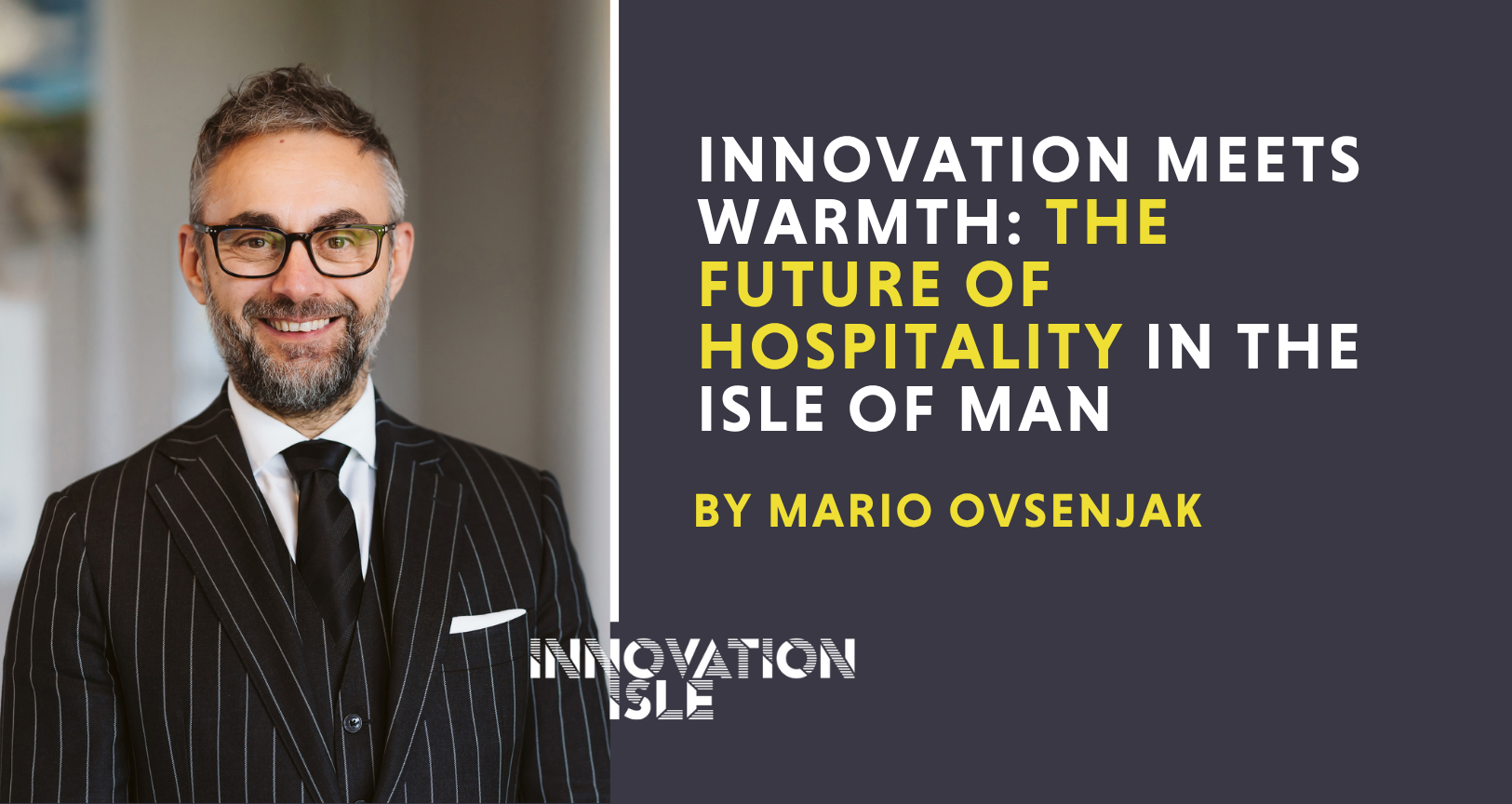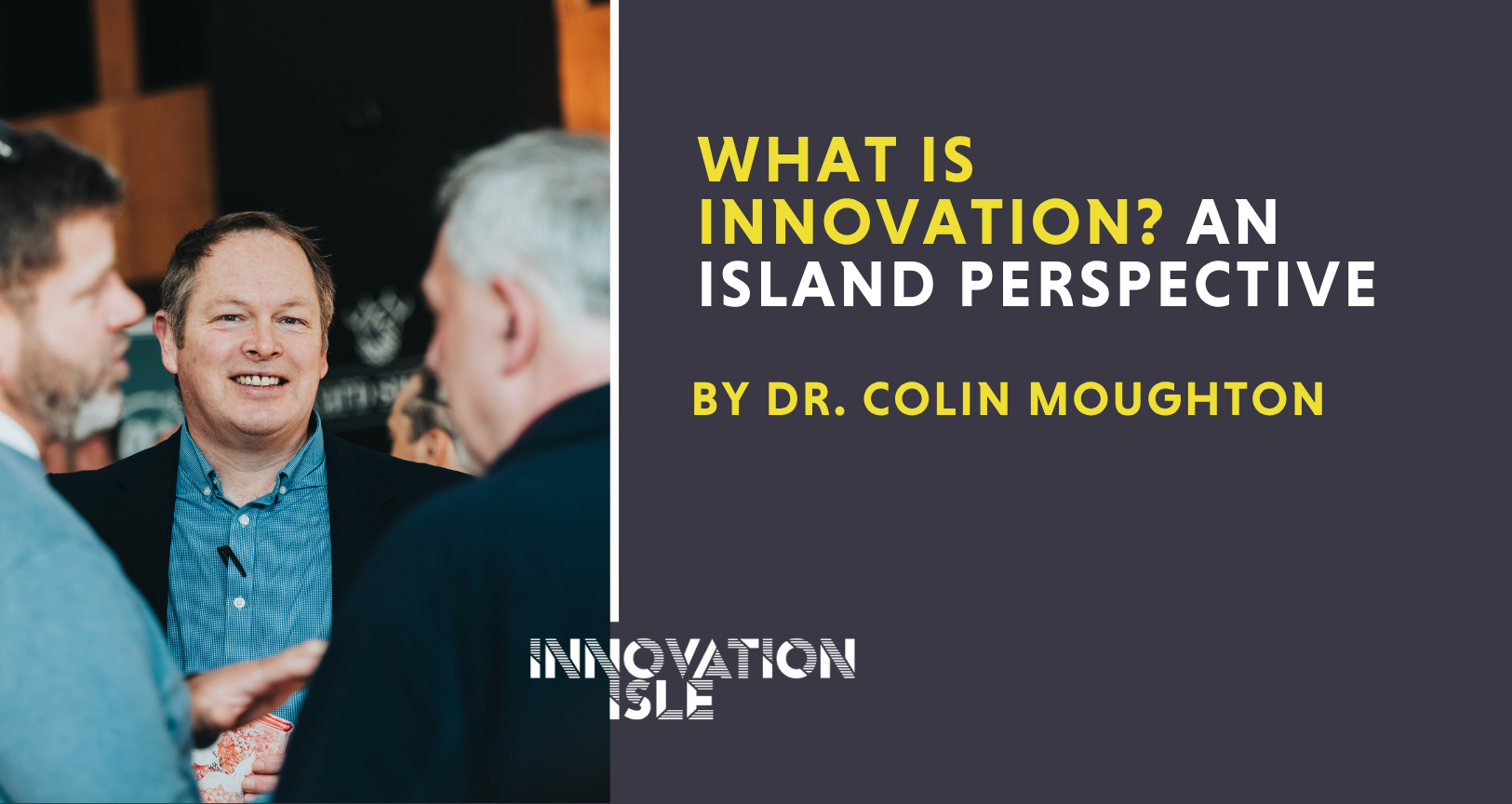HOW CHANGE IN TECHNOLOGY IS SHAPING THE FUTURE OF THE BUSINESS SECTOR
09 October 2019

As technology changes and advances, so must all the industries surrounding it. Change in technology is happening in business sectors without us even realising it. All around the UK and in the Isle of Man, technology is being implemented to extend a business’ ability to serve their customers, increase efficiencies and reduce costs. Businesses can use technology in manufacturing, transportation, and communications as a way of improving customer care, a service or product and gaining a competitive advantage.
Cleantech (Clean Technologies), or greentech, is a term that captures economic activity across all sectors and supply chains that deal with environmental issues. This can include anything from solar energy, wind power, water purification, and biofuels. With the progression of technology the options for the development and implementation of Cleantech in all sectors is boundless. TT Zero was an excellent example of how the Isle of Man reacted quickly to the Cleantech industry, when the race was launched ten years ago.
With climate change being recognised as a global issue, Cleantech is not only a priority for the Isle of Man, but the world and development of the Cleantech industry is inevitable. The Business Agency undertook a project this summer to ascertain the size and range of the CleanTech industry in the Isle of Man and the opportunities and barriers for the growth in the sector. The research suggests that the sector is optimistic and is projecting to grow in the next 12 months. The Climate Change Bill, which in May 2019 was committed to being presented to Tynwald in the next legislative year, looks at implementing plans to ensure all new-builds are ‘Net Zero’* within the next decade. The Cleantech forum, which is hosted quarterly by the Business Agency, met last month to discuss how Cleantech can be implemented as a solution on a local level to help deliver the new Climate Change Mitigation Strategy. These are ongoing conversations, but the Business Agency is committed to developing and growing this industry, and the Isle of Man provides investors with the ideal testing grounds for on-island initiatives. The Business Agency endeavours to implement some level of Cleantech into all its sectors, which would benefit from this technology to cut costs, materials used, and to lower the carbon footprint.
We are in the throes of Industry 4.0, or the fourth industrial revolution, which is essentially the digitisation of the manufacturing sector. This digitisation can be categorised into four: a rise in data volume, the emergency of analytics, new human-machine interaction interfaces and advanced robotics. Industry 4.0 also offers new tools for smarter energy consumption, greater information storage and real-time yield optimisation. In an article written by McKinsey & Company, the executives they surveyed believed that the illumination of data inefficiencies, by virtue of the digitisation, could improve productivity by 25%.
A not so obvious sector implementing the technological advancements is the Retail Industry. Once, purchases were only made in person. Fast forward to present day where internet shopping is the norm and in some parts of the world, deliveries can be made within the hour – and by drone! Who is to thank for this? Technology. This shift to omni-channel spending has steered companies to make adjustments and embrace technology in order to stay on top of the plethora of competition.
The retail sector should brace itself for further developments as technology may steer change again to payments using cryptocurrencies. Thirteen of the world’s major retailers and services are now accepting bitcoin and other cryptocurrencies as a form of payment such as Etsy, Expedia and gift card company, Gyft, who offer vouchers for retailers including Sephora, Whole Foods and Hotels.com. Moreover, some services and goods can be purchased using cryptocurrency in-store. Some Island businesses are leading the way in incorporating this technology into their trade, including Douglas pub, the Thirsty Pigeon, where you can pay for your pint using cryptocurrency!
Aside from cryptocurrencies and blockchain solutions, technology had started to influence the success of in-store retail and services. New technology in measuring footfall is just one way in which retailers are able to optimise store performance and convert window shoppers into customers. Footfall is a key metric for store managers wanting to increase sales and drive profits up. Long gone are the days when footfall in towns, villages and shops were tracked using a clicker. Now, thanks to technology, there are much more efficient ways of tracking footfall. Sensor technology is the employment of sensor to detect change in the designated environment where the collected data is sent to an electronic device for interpretation and analysis.
Footfall measurement is one initiative that the Business Agency is looking to implement. Understanding pedestrian trends and habits in the retail sector is fundamental in providing a baseline to build upon in the Island Retail Strategy. The Business Agency is currently implementing a Town and Village Branding Exercise across the Island, in collaboration with Visit Isle of Man and local commissioners, with the objective of promoting greater movement across the Towns and Villages from local residents and visitors. Through new footfall technology, such as sensory technology, the agency, towns and villages can obtain a representation of the increase or decrease in footfall to monitor the trends and habits of residents and visitors in respect to the Isle of Man’s High Streets.
Not only are these types of sensors used to analyse the shopping pattern and footfall of pedestrians, but similar technology is also used for parking. Smart parking is a vehicle parking system that assists drivers in finding a vacant spot through technology that detects the presence or absence of a vehicle. Manx Technology Group supplies the UK, Ireland and Channel Islands with a full-range of Libelium Smart Parking Sensors. Their smart parking sensors use Radar technology to improve the retail experience – providing convenience to shoppers parking at peak times as well as real-time and electronic payment methods via an app or a browser; reduce environmental impact – reducing the time taken driving around looking for a spot; and create new business models – providing councils and car park operators with rich data-sets to identify trends and other metrics.
It’s safe to say that technology is leading the way in developing and improving the business sectors, and we’ve only just scratched the surface. The most important thing to acknowledge is the preparation and investment needed for this digital transformation.
* A net zero building is a building with zero net energy consumption, meaning the total amount of energy used by the building on an annual basis is equal to the amount of renewable energy created on the site, or in other definitions by renewable energy sources offsite. In some cases these buildings consequently contribute less overall greenhouse gas to the atmosphere during operations than similar non-ZNE buildings.





